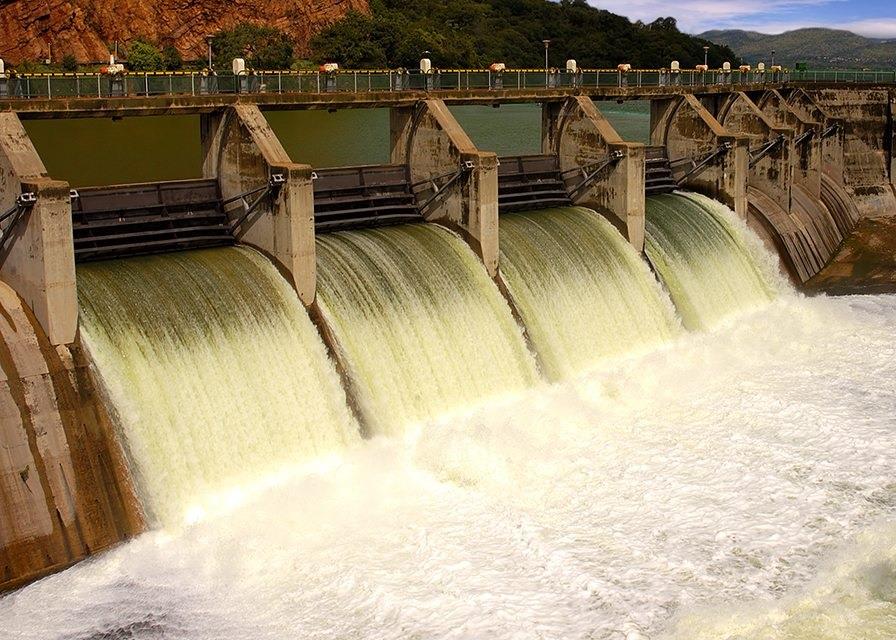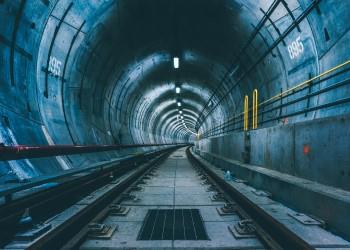
Lower oil prices and sluggish global growth dampen performance
- UAE non-oil economic growth to be 2.4 per cent in 2015
- Growth expected to rise to 4.6 per cent by 2020
- Major projects must be delivered sustainably
The UAE should continue to invest in projects as economic growth slows during 2015 due to lower oil prices, sluggish global growth and volatile emerging markets.
The Washington-based IMF concluded an Article IV consultation with the UAE on 29 July and said: Lower oil prices are eroding long-standing fiscal and external surpluses, but the UAE has continued to benefit from its perceived safe haven status and large fiscal and external buffers that have helped limit negative spillovers from lower oil prices, sluggish global growth, and volatility in emerging market economies.
The headwinds mean the IMF expects the UAEs non-oil growth to slow to 3.4 per cent in 2015, before increasing to 4.6 per cent by 2020, supported by the implementation of megaprojects and private investment in the run up to Expo 2020.
In April, UAE Economy Minister Sultan Saeed al-Mansouri told MEED he expects growth in 2015 to be 3.5 per cent.
The forecast growth rates are down on 2014, when non-oil growth was 4.8 per cent, driven by construction, notably owing to capital spending in Abu Dhabi, and services underpinned by Dubais transportation and hospitality sectors. Another driver for growth during 2014 was Dubais real estate market. Since mid-2014, property prices have edged down.
In July, US-based real estate firm JLL said Dubais hotel and residential segments are the worst performing sectors.
Even though there have been high-profile project announcements, falling property prices have meant many new schemes have been slow to move forward during 2015. The IMF said the UAE should continue with large-scale capital expenditure programmes at a steady and sustainable pace: Government investments should be preserved relative to non-hydrocarbons GDP to support infrastructure, while the implementation of [government-related entity (GRE)] megaprojects should be gradual, in line with the expected demand, said the fund.
According to data from regional projects tracker MEED Projects, the UAEs projects market declined substantially, with a value of $17.3bn during the first half of 2015, down 44.4 per cent on the same period last year.
The slowdown in growth means the fiscal balance this year is expected to turn negative for the first time since 2009, to record a deficit of 2.9 per cent of GDP. The IMF said this will be temporary and surpluses are expected from 2016.
The fund said the current account surplus is also projected to decline substantially, to 5 per cent of GDP, and will slowly increase with the projected gradual recovery in oil prices. Credit growth is expected to remain supportive of the activity.
For the financial sector, a positive has been GREs continuing to strengthen their finances. Dubai Aerospace Enterprise (DAE) repaid a $705m syndicated loan in July.
DAE built up significant debts between 2007 and 2009 in funding ambitious expansion plans, which it was forced to abandon due to the global economic downturn. In mid-2014, Dubai property developer Nakheel prepaid AED5.54bn ($1.5bn) of bank loans, for which the last installment was not due until March 2018.
A concern for the future is that lower oil prices combined with a increased interest rates in the US could tighten finances. Lower oil prices are eroding fiscal and external surpluses, and going forward a hike in the US interest rate could lead to a tightening of financial conditions, said the IMF. These risks could be exacerbated by high volatility in stock markets, high NPLs [non-performing loans], and low banking system liquidity if government and GREs withdraw deposits.
The IMF also said the UAE should consider raising more non-hydrocarbons revenues through new tax measures a process that has already started. In early July, MEED reported that the country is set to put forward draft laws that will look to implement a new taxation system, as the government looks to increase state revenues. The drafting of the laws is expected by the final quarter of this year.
It is understood the UAE may look to introduce some sort of value-added tax (VAT) and corporate tax despite the countrys reputation as an international tax haven. Previous reports have suggested the UAE is reluctant to adopt VAT-type taxes unless neighbouring countries follow suit in fear of hurting its competitiveness in the region.
In May this year, GCC officials adopted a draft agreement to implement VAT. Each GCC member agreed to issue a separate VAT law that includes the principles of the draft agreement.
Subsidies have also started to be addressed by the UAE. In August, the Energy Ministry set new nationwide fuel prices. The prices, which will be reviewed every month, will be AED2.25 (61 cents) a litre for the most expensive type of fuel, unleaded petrol (super), while diesel fuel will cost AED2.05 a litre, which is down from its current price of AED2.9 a litre. The increase in prices represents a 23 per cent hike for super unleaded and a 28 per cent increase for the cheapest grade of petrol, which has moved from AED1.61 a litre to AED2.07 a litre.
The Energy Ministry said it made the decision in line with its strategy to support the national economy, lower fuel consumption, protect the environment and preserve national resources.
You might also like...

Ajban financial close expected by third quarter
23 April 2024

TotalEnergies awards Marsa LNG contracts
23 April 2024

Neom tenders Oxagon health centre contract
23 April 2024

Neom hydro project moves to prequalification
23 April 2024
A MEED Subscription...
Subscribe or upgrade your current MEED.com package to support your strategic planning with the MENA region’s best source of business information. Proceed to our online shop below to find out more about the features in each package.




